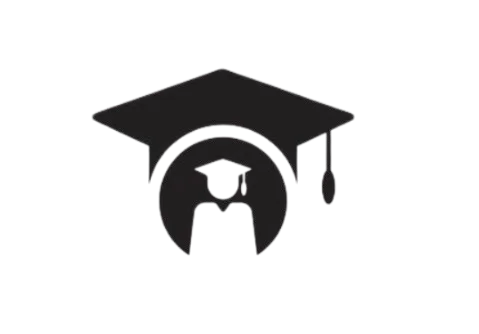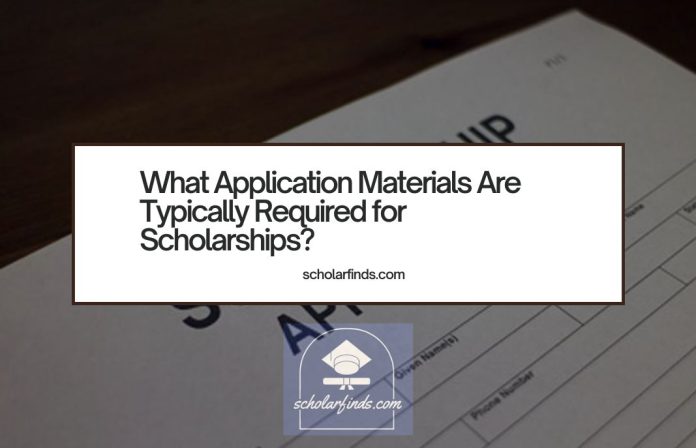Introduction
What Application Materials Are Typically Required for Scholarships? – Applying for scholarships is a critical step in securing financial aid for your education, but the application process can be daunting, especially when it comes to gathering the necessary materials. Understanding the common application materials required for scholarships can help you prepare effectively and increase your chances of success.
Common Scholarship Application Materials
- Academic Transcripts
- Purpose: Your academic transcript is a detailed record of your grades and courses throughout your educational journey. It demonstrates your academic performance and achievements, which are crucial for merit-based scholarships.
- What to Prepare: Request official transcripts from your high school or college, ensuring they are up-to-date and include all relevant coursework. Some scholarships may also accept unofficial transcripts, but it’s important to check the specific requirements.
- Personal Statement or Essays
- Purpose: Essays or personal statements allow you to express your motivations, goals, and qualifications beyond what is shown in your transcripts. This is your opportunity to tell your story and explain why you deserve the scholarship.
- What to Prepare: Carefully read the essay prompts provided by the scholarship program. Tailor your essay to address these prompts, highlighting your academic achievements, personal experiences, and future aspirations. Be sure to proofread your essays for clarity and grammar.
- Letters of Recommendation
- Purpose: Letters of recommendation provide insight into your character, work ethic, and potential from the perspective of someone who knows you well, such as a teacher, counselor, or employer.
- What to Prepare: Choose recommenders who can speak positively and knowledgeably about your abilities. Give them plenty of time to write the letter, and provide them with any necessary information about the scholarship and your accomplishments.
- Standardized Test Scores
- Purpose: Some scholarships, particularly those for undergraduate students, may require standardized test scores like the SAT, ACT, GRE, or TOEFL. These scores help scholarship committees assess your academic preparedness.
- What to Prepare: Make sure your test scores are up to date and meet the minimum requirements specified by the scholarship. You may need to request that the testing agency send your scores directly to the scholarship provider.
- Resume or Curriculum Vitae (CV)
- Purpose: A resume or CV provides a summary of your academic achievements, work experience, extracurricular activities, and any honors or awards. It helps the scholarship committee get a holistic view of your qualifications.
- What to Prepare: Update your resume or CV to include your most recent accomplishments. Focus on experiences that are relevant to the scholarship and highlight your leadership, community involvement, and other pertinent skills.
- Financial Information
- Purpose: Some scholarships are need-based, meaning they are awarded based on your financial situation. In these cases, you may be required to submit financial documents to demonstrate your need for financial aid.
- What to Prepare: Gather financial documents such as tax returns, FAFSA (Free Application for Federal Student Aid) reports, and any other financial information requested by the scholarship provider.
- Portfolio (if applicable)
- Purpose: For scholarships in fields such as the arts, design, or architecture, you may be required to submit a portfolio showcasing your work. This allows the scholarship committee to assess your creative talents and technical skills.
- What to Prepare: Compile a portfolio that highlights your best and most relevant work. Ensure that it meets any specific guidelines provided by the scholarship, such as file format, size, or content requirements.
Importance of Checking Specific Requirements
While the materials listed above are commonly required, it’s important to note that each scholarship may have its own unique set of requirements. Some scholarships might ask for additional documents, such as proof of citizenship, a research proposal, or a project plan. Others might have specific formatting or submission guidelines.
Tip: Always read the scholarship application instructions carefully and make a checklist of all required materials. Double-check each scholarship’s individual page to ensure you don’t miss any critical documents or details.
Conclusion
Preparing your scholarship application materials in advance can greatly enhance your application process. By understanding what documents are typically required and organizing them early, you can ensure that your application is complete and stands out to the scholarship committee. Remember, thorough preparation and attention to detail are key to making a strong impression and securing the financial aid you need for your education.



